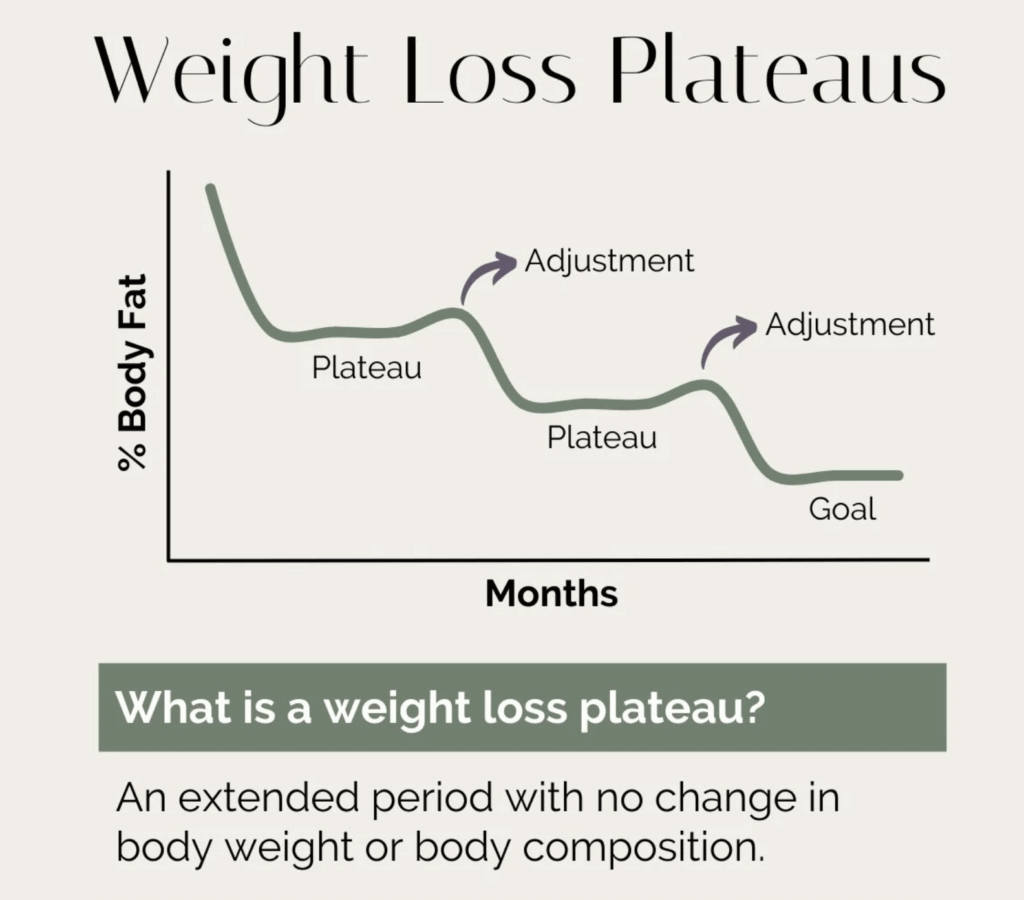
Breaking Weight Loss Plateaus: What to Do When GLP-1 Drugs Aren’t WorkingMany people struggling with weight loss may feel discouraged when they don’t see the expected results from GLP-1 analogs....
Breaking Weight Loss Plateaus: What to Do When GLP-1 Drugs Aren’t Working
Many people struggling with weight loss may feel discouraged when they don’t see the expected results from GLP-1 analogs. Despite being hailed as breakthrough medications for managing obesity, there are cases where the scale refuses to budge. This plateau can lead to frustration, undermining both motivation and commitment to the process. To combat this, understanding the potential reasons behind weight stagnation and implementing strategic solutions is key. By learning how lifestyle factors, metabolic adaptation, and proper medication use play a role, individuals can make informed decisions and reignite their progress.
Introduction
GLP-1 agonists have emerged as promising tools in the battle against obesity, helping individuals achieve meaningful weight loss. For many, they deliver results that were previously difficult to attain. However, not everyone experiences immediate or consistent weight loss while on these medications, which can be perplexing and frustrating. If you’re among those who aren’t seeing the scale move as expected, you’re not alone.
This article will explore possible reasons for this phenomenon, examining medical, physiological, and lifestyle factors that could be affecting your progress.
Understanding GLP-1 Drugs and Weight Loss
GLP-1 (glucagon-like peptide-1) analogs work by mimicking the body’s natural hormone that regulates appetite, insulin response, and glucose metabolism. This class of medication plays a crucial role in reducing food intake by making you feel fuller longer, controlling blood sugar levels, and slowing gastric emptying. While these effects can lead to significant weight loss for many, they do not work in isolation.
Several variables affect how individuals respond to GLP-1 drugs, including the dosage, adherence to the medication regimen, and individual metabolic differences. While some experience quick weight loss, others might notice only a gradual decrease or even a plateau after initial success. It’s important to remember that medications alone are not a magic bullet—they must be accompanied by other strategies for sustainable weight management.
Common Reasons for Weight Loss Plateaus on GLP-1 Drugs

1. Metabolic Adaptation:
As you lose weight, your metabolism slows down—a process known as metabolic adaptation. Your body becomes more efficient at using energy, which can result in fewer calories burned at rest. This decrease in energy expenditure makes continued weight loss more difficult.
2. Inadequate Lifestyle Adjustments:
While GLP-1 agonists curb appetite and promote satiety, they do not replace the need for a balanced diet and regular physical activity. If you rely solely on the medication without making meaningful changes to your daily habits, weight loss may stagnate. Incorporating nutrient-dense foods and maintaining an active lifestyle are critical components of long-term success.
3. Hormonal Factors:
Your body’s hormonal balance plays a significant role in weight regulation. Cortisol (stress hormone) and insulin resistance can both hinder weight loss. Elevated stress levels may trigger cravings for high-calorie, low-nutrient foods, while insulin resistance affects how your body processes glucose, leading to fat storage instead of fat burning.
4. Medication Mismanagement:
Incorrect dosage or inconsistent use of GLP-1 drugs can also impact results. Following the prescribed dosage and timing instructions is essential to ensuring that the medication works effectively. Additionally, some individuals may require adjustments in dosage over time to continue seeing progress.
5. Underlying Medical Conditions:
Conditions such as hypothyroidism, polycystic ovary syndrome (PCOS), and other metabolic disorders can interfere with weight loss. If you have a medical condition that affects metabolism, it may require additional interventions or treatments alongside GLP-1 agonists to achieve optimal results.
6. Lack of Sleep:
Sleep plays an often-overlooked role in weight management. Poor sleep disrupts hormones that regulate hunger and satiety, particularly ghrelin and leptin, which can increase appetite and cravings for unhealthy foods. Prioritize 7-9 hours of solid sleep every night to boost your weight loss progress.
7. Diet Quality:
Even though GLP-1 drugs reduce overall food intake, what you eat still matters. A diet high in processed foods, refined sugars, and unhealthy fats can derail weight loss progress. Focus on whole, nutrient-rich foods like lean proteins, healthy fats, vegetables, and complex carbohydrates to fuel your body and support weight loss.
Research-Backed Insights on GLP-1 Agonists and Weight Loss
Studies have consistently shown that GLP-1 analogs can result in significant weight loss, with participants losing an average of 5-15% of their body weight over 6-12 months. However, research also highlights the importance of individualized care. A 2021 study published in The Lancet found that while GLP-1 drugs were effective for many, their success varied based on factors such as genetic predisposition, underlying medical conditions, and adherence to lifestyle modifications.
Moreover, research from the Journal of Obesity has demonstrated that combining GLP-1 agonists with behavioral interventions—such as dietary changes, physical activity, and psychological support—leads to greater long-term success compared to medication alone. This underscores the importance of a comprehensive approach to weight management.
Strategies to Overcome Weight Loss Stalls
1. Reassess Your Caloric Intake:
As your body weight decreases, your caloric needs change. Recalculate your daily caloric intake based on your current weight and activity level to ensure you’re maintaining a slight calorie deficit. This can help restart the weight loss process.
2. Increase Physical Activity:
If your activity level has remained stagnant, consider increasing both the frequency and intensity of your exercise routine. Strength training, in particular, helps build muscle, which increases metabolic rate and supports fat loss.
3. Focus on Protein Intake:

Protein is essential for preserving muscle mass, especially when losing weight. Ensure that your diet includes sufficient lean protein sources like chicken, fish, tofu, and legumes to support muscle retention and metabolism.
4. Monitor and Adjust Medications:
Talk to your healthcare provider if you’re not seeing the desired results. They may recommend adjusting the dosage or exploring other weight loss medications that complement GLP-1 drugs to enhance efficacy.
5. Prioritize Mental Health and Stress Management:
Elevated stress levels may interfere with weight loss success. Incorporating stress-reducing activities like yoga, meditation, or mindfulness can improve hormonal balance and support healthier eating habits.
6. Consider Sleep Hygiene:
Improving your sleep quality can help regulate the hormones that control hunger and satiety. Establish a regular sleep schedule, avoid caffeine and screen time before bed, and create a calming bedtime routine.
The Role of LifeRx.md in Your Weight Loss Journey
At LifeRx.md, we understand that weight loss is a complex and multifaceted process. That’s why our online weight loss clinic offers personalized care plans tailored to your unique needs. Whether you’re just starting on GLP-1 agonists or need guidance through a weight loss plateau, our expert team provides the support, education, and resources necessary for sustainable results.
Through telemedicine, LifeRx.md ensures that individuals across the United States have access to convenient, high-quality weight loss solutions. Our team works closely with you to adjust medications, offer nutritional guidance, and track your progress, ensuring that you’re never alone in your journey.
Conclusion:
Not losing weight on GLP-1 drugs can be frustrating, but it’s important to remember that weight loss is rarely linear. Plateaus are normal, and they don’t mean the end of your progress. By addressing potential barriers like metabolic adaptation, lifestyle factors, and proper medication use, you can overcome these challenges and continue your weight loss journey successfully. LifeRx.md is here to provide the tools, support, and guidance you need to navigate these obstacles and achieve lasting results.